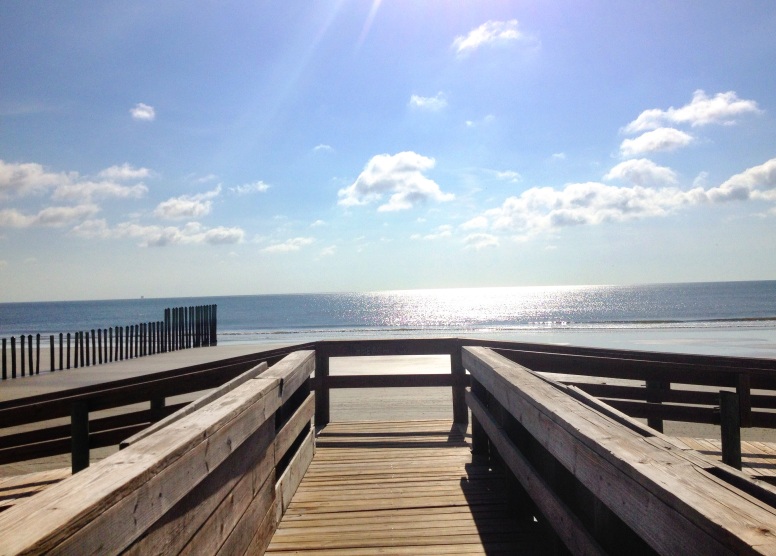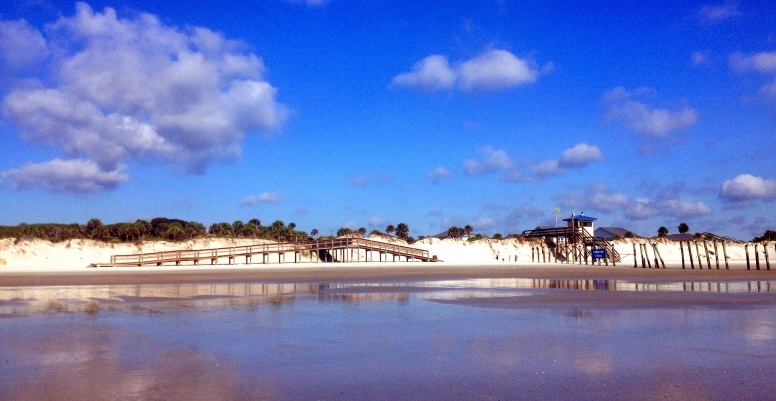The tide was low and I was wading in the still warm fall surf with beach poet and our yellow dog when I noticed a gathering of dark objects near the dunes. From that distance they looked like a loose pile of skull-sized rocks but I knew they weren’t. Hanna Beach can be rocky at times but it doesn’t have rocks that size.
I thought they were horseshoe crab shells. But I told myself they must be something else as I headed that way to investigate.
Horseshoe crabs on these beaches aren’t unusual. Discarded shells of various sizes, some with their creatures intact, often stay behind in the sand as the sea recedes twice a day. But I hadn’t seen more than a handful together before that walk.
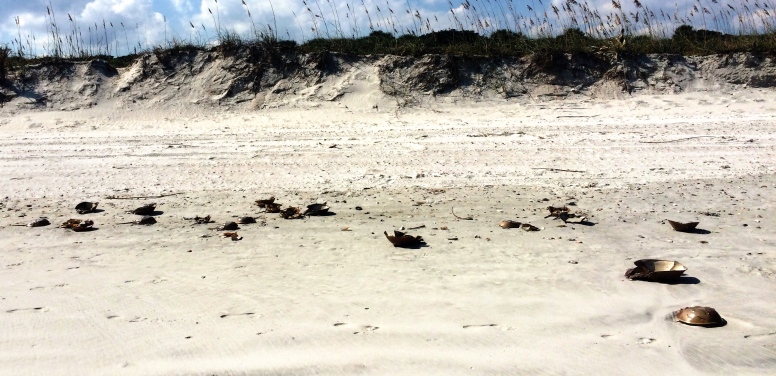
Horseshoe crabs scattered on Hanna Beach, Fall 2014
What I found near the dune was a group of more than two dozen shells, many of them among the largest I’ve seen during three years of walking area beaches. Most of the collection was together, some touching or tumbled off of another, with a few outliers several feet in both directions. A few had crabs or crab parts. Most were full shells or full shells minus a few tears or cracks. Some were resting on top of the sand. Some were buried or nearly buried. There was no pattern to their alignment. It was if a giant hand tossed them up on to the shore and left them where they landed. All of them without a doubt horseshoe crabs.
Horseshoe crabs are easy to recognize, so why would I doubt what I saw from the shore?
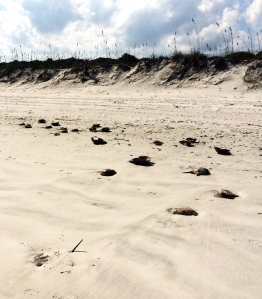
Horseshoe crabs scattered on Hanna Beach, Fall 2014
Because it was different.
Changed.
We humans are obsessed with change. Whether we embrace or fear it, work to initiate it or strive to barricade or legislate against it, change is the most reliable aspect of our lives. How we react to it varies but our reactions are emotional. Change makes us FEEL something, just like a good story does.
There’s been a lot said, and written, and studied about what makes a good story, what humans look for or want in stories, and how stories change minds, open hearts, and transform societies. In recent years, marketing has made story their darling, rediscovering that telling a story is the best way to get and keep someone’s attention. Stories and storytelling are everywhere we look, listen, read, and worship.
“Storytelling is the most powerful way to put ideas into the world today.”
–Robert McKee
All of this chatter about what makes a good story and why we like stories and how we use stories to sell apples, promote war, or foster understanding and empathy, has led to a world of writing and storytelling advice ranging from contradictory to awful. There are some gems among the muck, however, and one of those can be found in Lisa Cron’s definition of story.
“A story is how what happens (the plot) affects someone (the protagonist) in pursuit of a difficult goal (the story questions) and how he or she changes
as a result (which is what the story is actually about.” –Lisa Cron,
The biggest Mistake Writers Make and How to Avoid it
Stories are like snapshots, but snapshots capture a moment, whereas stories capture movement.
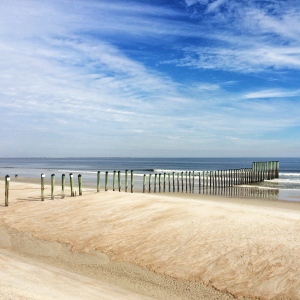
The Poles at Hanna Beach, Fall 2014
Stories are not just a revelation of what happened. Stories are about how someone changes as a result of what happened. Stories are about change — not external or situational change, but the individual change brought about by those external shifts of circumstance.
Personal growth.
“If you keep telling the same sad small story, you will keep living the same sad small life.” — Jean Houston
Good stories–the ones we biologically crave, the ones that stay with us and shape us, the ones that change hearts, minds, and societies–are stories about how people are affected by what happens to them, how we are changed by change. We’re looking for examples of how to react and rebound, or sometimes how not to handle life’s shifts and turns. Regardless of the style or setting, the fairy tales, scifi epics, and literary tomes that captivate us are the ones that change the main characters, the readers or audience, and those of us telling the tale.
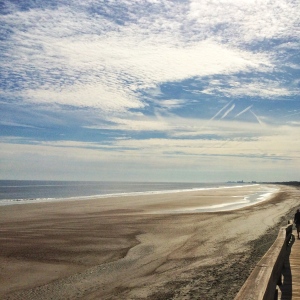
Looking south toward Atlantic Beach, Neptune Beach, and Jax Beach from The Poles at Hanna Beach, Fall 2014
Stories change you, change me, explain change, embody change, ARE change. Wherever there is a change, there is a story.
Believe it.
Tell it.
Change.
This is the third and final blog of our three-part series on story.

